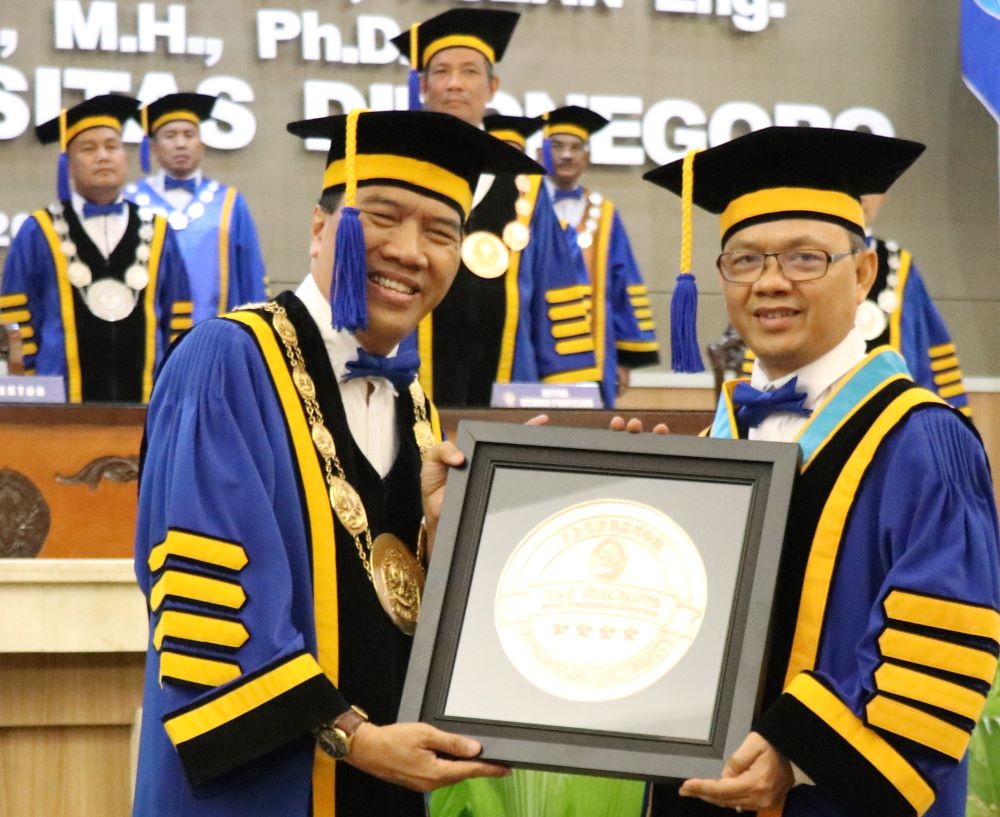Diponegoro University again inaugurated three professors on Tuesday (12/9) at the Prof. Sudarto, S.H. Building, Undip Tembalang. In the morning session of the inauguration ceremony, the three professors inaugurated were Prof. Dr. Dian Wijayanto, S.Pi., M.M., M.S.E. (Faculty of Fisheries and Marine Sciences); Prof. Dr. Ir. Endang Purbowati, M.P. (Faculty of Animal and Agricultural Sciences); and Prof. Dr. Ir. Heru Prastawa, D.E.A. (Faculty of Engineering).

“The problem of overfishing can be prevented and reduced through sustainable fisheries management, including determining the amount of permitted catch (quota), restrictions on equipment, fishing areas, fishing time, a minimum size of fish that can be caught, number of fleets and fishing effort, as well as tax policies, subsidies, and licenses. “The research team from Undip has developed several bioeconomic models as a contribution to the development of bioeconomic science,” he explained.
Meanwhile, Prof. Endang delivered his scientific speech entitled “Low Fat, Sustainable and Environmentally Friendly Lamb Meat Production: A New Paradigm.” Increasing the sheep population for food is not recommended, considering that methane gas resulting from digestion will affect climate change, plus the depletion of land for food production due to the increase in residential land. The solution is to increase and shorten production time. Currently, consumers want low-fat meat, so a strategy is needed to produce low-fat lamb, which is sustainable and environmentally friendly.
“Livestock productivity is influenced by livestock and feed factors. Fattening weaned sheep for 3 months is more efficient and can produce tender and low-fat meat at a slaughter weight of 20 kg. Complete feed in pellet form to produce a low-fat lamb with 15% crude protein (PK) and 60% total digestible nutrients (TDN). Replacing elephant grass with agro-industrial residue does not harm the environment,” she said.
“Human Factors Engineering plays a critical role in shaping the human-centric future of Society 5.0. By focusing on user-centered design, facilitating human-machine collaboration, addressing workforce adaptation, and paying attention to ethical considerations, HFE ensures that technology improves well-being, productivity, and sustainability,” he concluded. (LW/Warnoto – Public Relations)